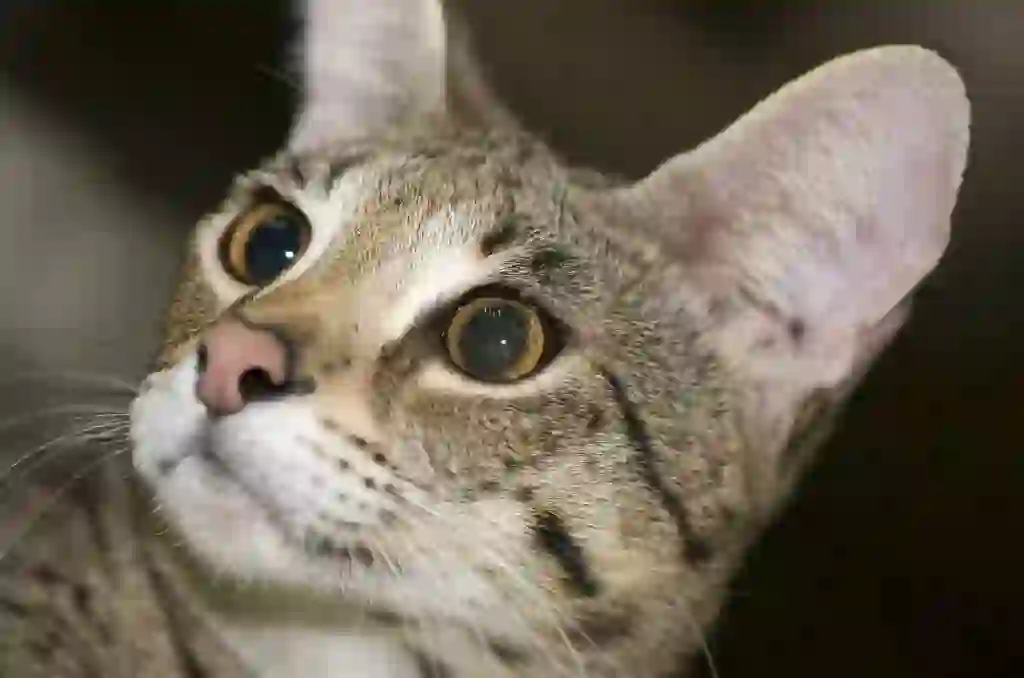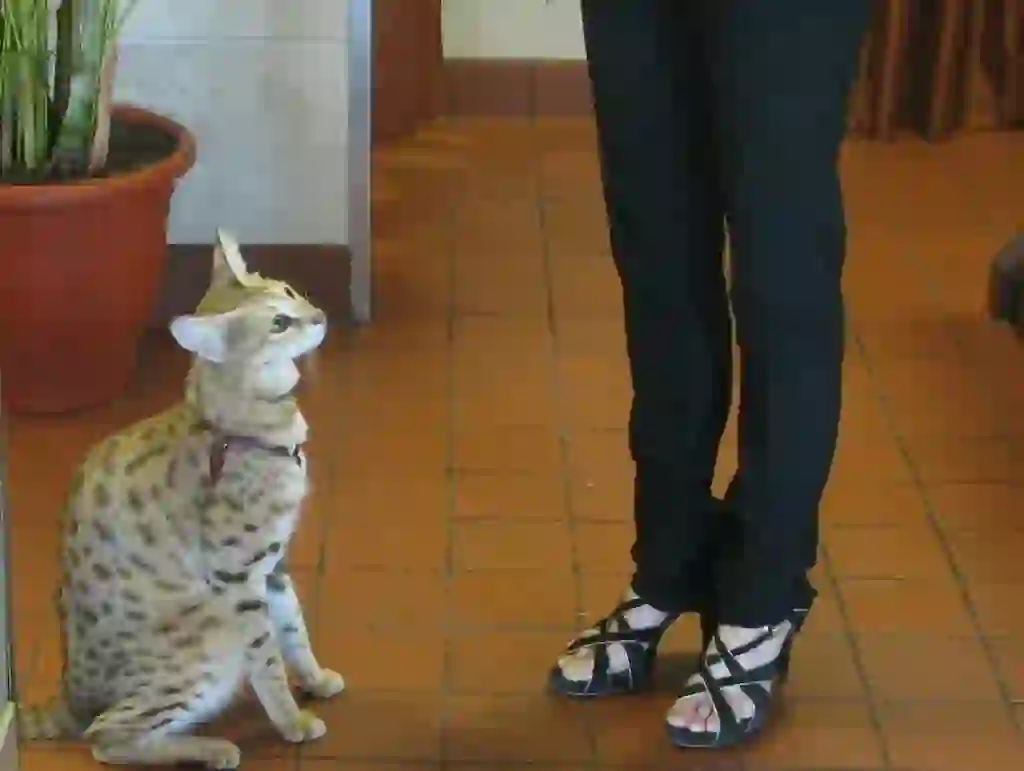
Savannah
Savannah
Savannah
When you think of wild-looking cats, you might think of Bengals, Toygers, and Ocicats. Today, let's introduce the 'Savannah' cat! The name itself evokes an image of a wild-looking cat, though it's rarely seen in Japan, and many may have never heard of it before. Why not secretly delve into the secrets of the Savannah cat?
Savannah Basic Infomation
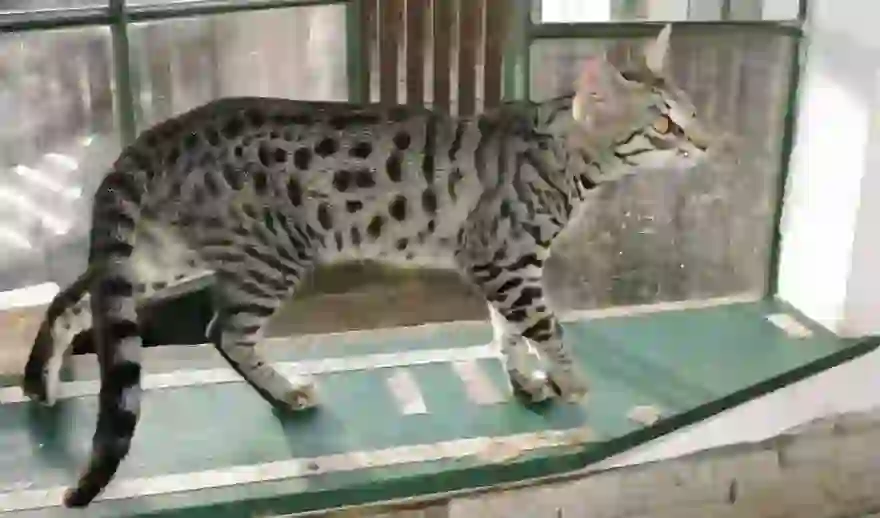
Country of origin: United States
Length: 50–80 cm
Weight: Males: 6.5–13 kg, Females: 5–10 kg
The Savannah cat is a breed born from crossing a wild Serval cat with a domestic cat. Breeder Judy Frank crossed a Serval with a Siamese, and the offspring became the first generation (F1) Savannah, attracting considerable attention.
However, there are protective laws and regulations for owning Serval cats, making them difficult to obtain. Furthermore, domesticating a wild cat like the Serval proved very challenging, leading many breeders to give up on breeding Savannahs altogether for a while.
Time passed, and a breeder named Patrick Kelly, enamored by the charm of the Savannah, put effort into breeding. He acquired a Savannah kitten and started breeding the second generation (F2). Subsequently, the third (F3) and fourth (F4) generations were also born.
In 1996, Patrick Kelly and his collaborator Joyce Sroufe created a breed standard for the Savannah, but there were concerns about whether it was appropriate to domesticate and keep a pet with wild Serval blood. There was worry about the potential for Serval cats to be poached as a result of the Savannah's popularity. After many discussions, the breed was officially registered with TICA in 2001. It participated in its first cat show in 2012.
Currently, Savannah cats exist from the first generation (F1) to the seventh generation (F7), categorized by the percentage of Serval genes they possess.
Savannah Q&A

What is the origin of the name 'Savannah'?
The details are unclear, but it seems to be related to the breeding with the Serval cat.
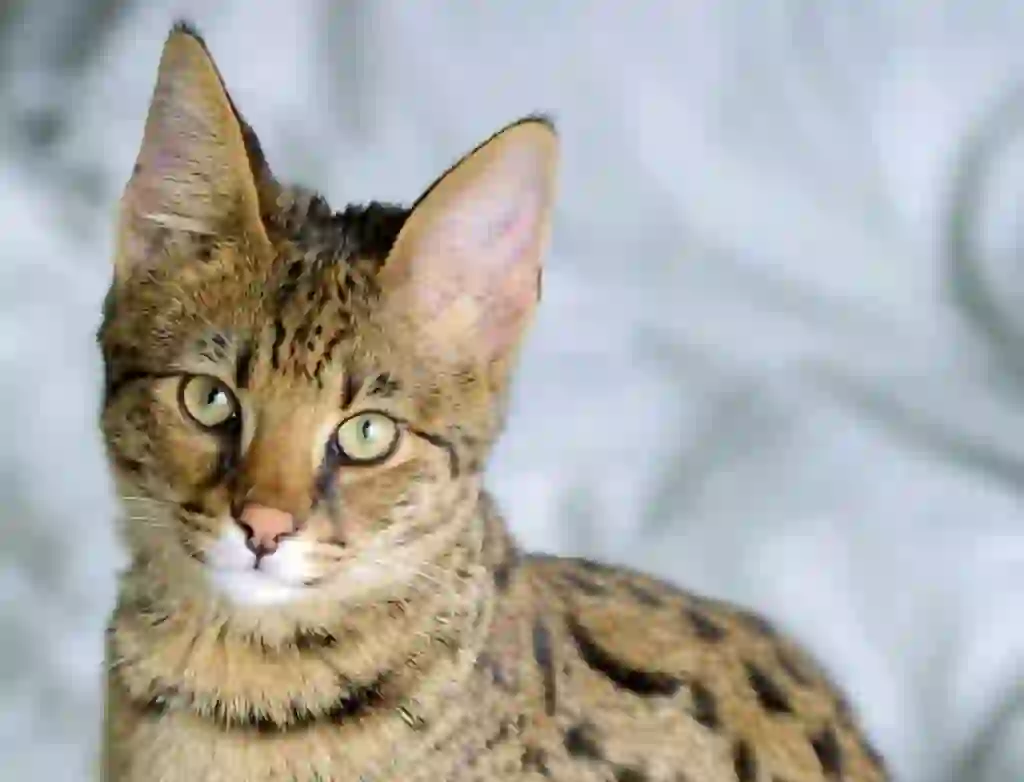
What color variations do Savannah cats have?
Colors include black, chocolate, red, silver, brown, and cinnamon.
Spotted Tabby: Only spots are present throughout the body.
Eye colors include green, hazel, gold, and yellow.
Savannah cats are exclusively short-haired.
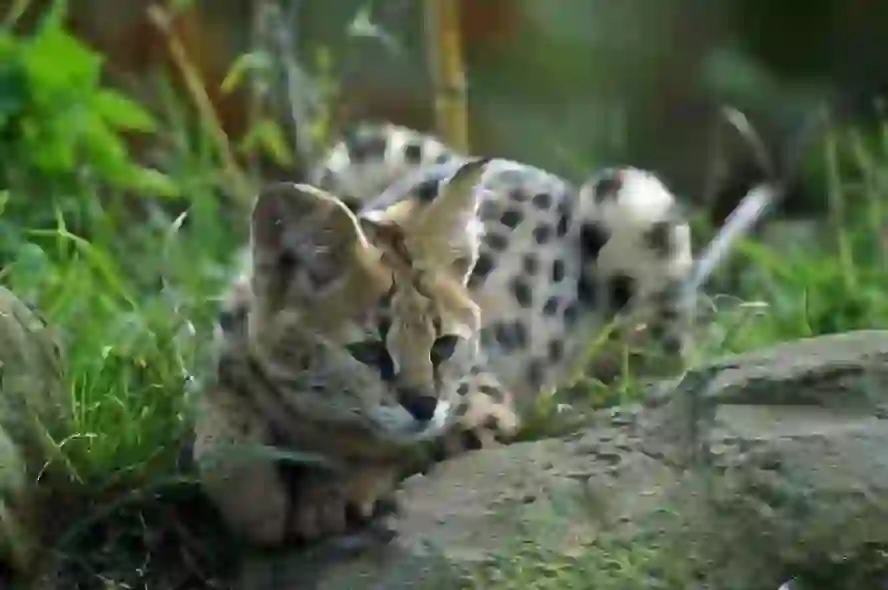
What does the 'F' generation mean for Savannah cats?
As briefly mentioned in the basic information, Savannah cats are categorized by generations. This indicates how many generations a kitten is from the crossbreeding of a Serval cat and a domestic cat.
A kitten born from a Serval and a domestic cat is designated 'F1'. A kitten from an F1 and another domestic cat is 'F2'. This continues down to F3, F4, F5, with the final being F7.
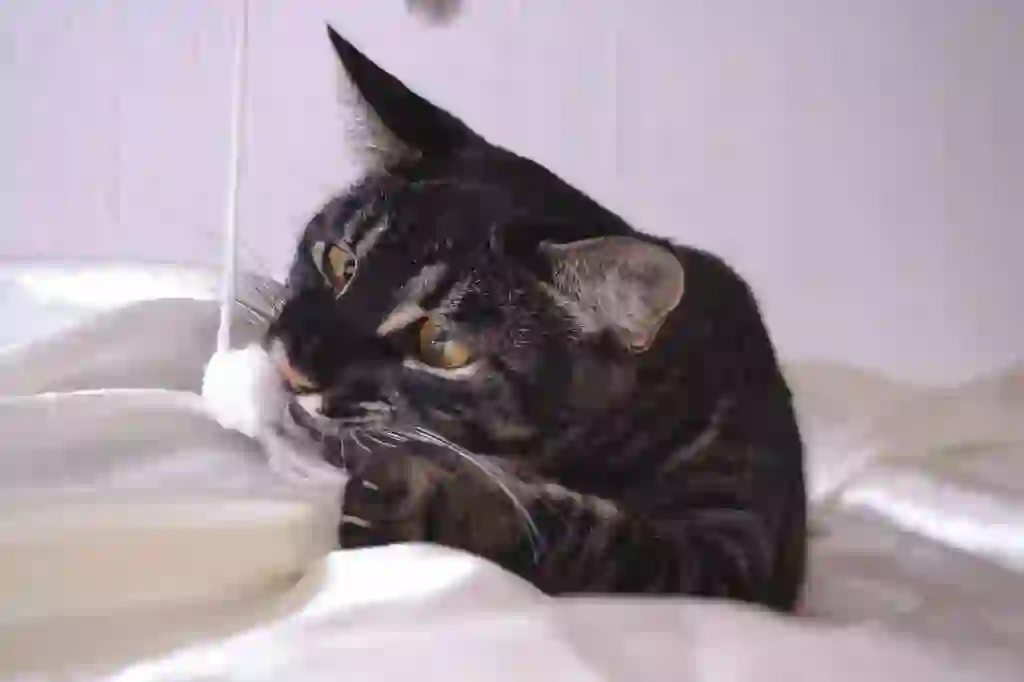
What does a Savannah cat look like?
They have a small, triangular head, almond-shaped eyes, and large ears. The body type is called semi-foreign. Savannahs also feature a distinctive black tear-streak or 'cheetah tear' line that runs from the corner of the eye down the side of the nose. They are larger and heavier than most domestic cats.
Their long legs and muscular build reflect their wild Serval ancestry. Depending on how much Serval blood they have, their appearance can vary significantly. Generations (F) were previously mentioned, which also influence their looks, progressively showing more domestic cat features in higher generations.
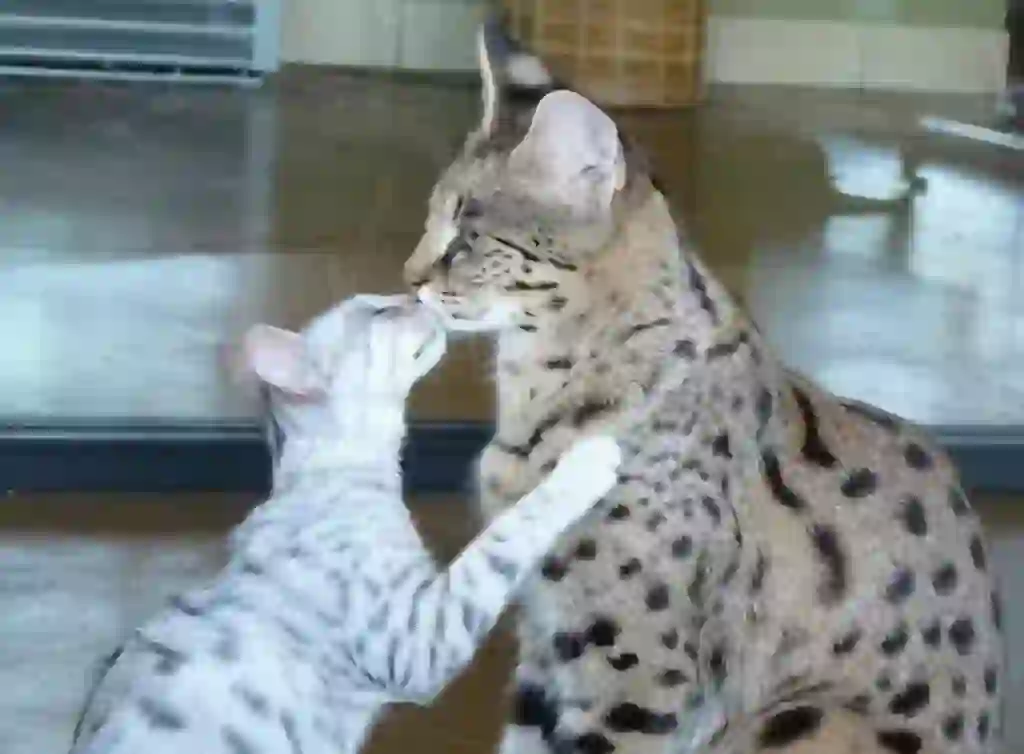
How much does it cost to purchase a Savannah cat?
Savannah cats are rarely found in pet stores, so they are typically purchased from breeders or catteries. Prices range from 400,000 to 600,000 yen. For F1 to F3 generations, prices can exceed 800,000 yen. If you find a kitten you like, it is advisable to visit the breeder before buying.
Purchasing from a 'cattery', which is a breeder with higher qualifications, may cost more than buying from a general breeder. Catteries must be accredited by pedigree registration bodies like 'CAF' or 'TICA', making them more reliable and adding value to their cats.
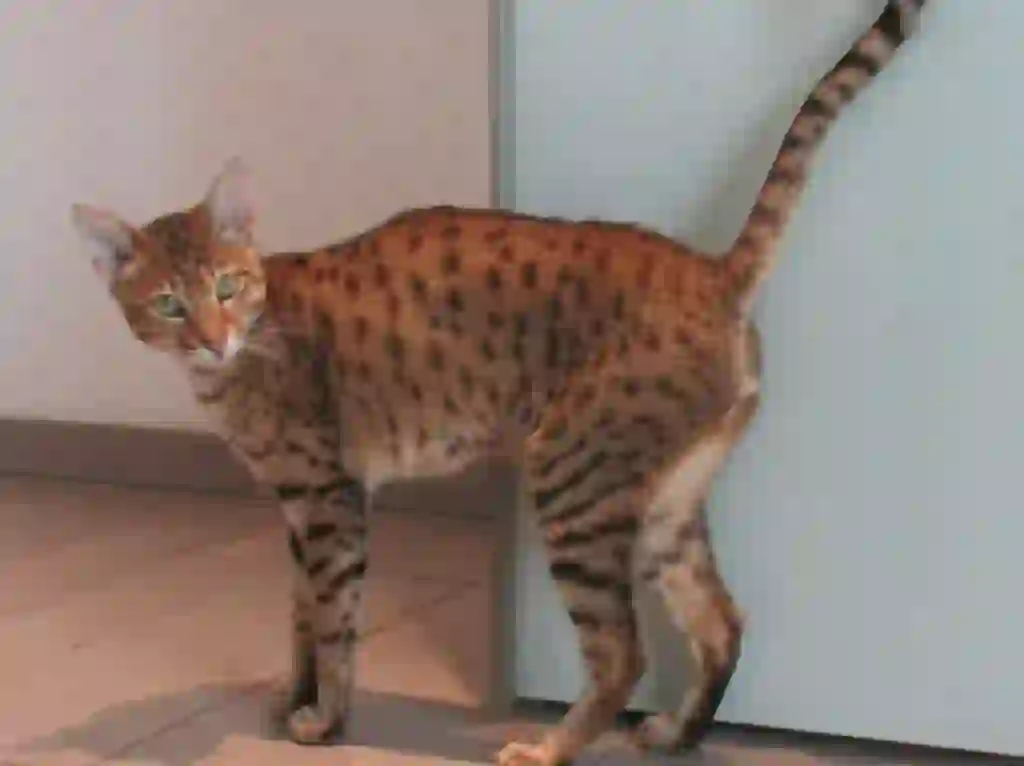
I want to know more about Savannah cats' personality and characteristics!
Despite their wild appearance, Savannah cats are surprisingly friendly and sociable, forming strong attachments to their favorite humans or exclusively bonding with their owners, especially in higher generations like F1 to F3.
They are intelligent and can remember their owner's actions, occasionally opening doors or turning on taps. They are relatively easy to train and can even play fetch like dogs.
Savannah cats are highly athletic with strong jumping abilities, requiring ample space for exercise to prevent them from becoming understimulated. Many also enjoy water, which is atypical for cats.
They are very affectionate towards their favorite people and can become stressed if they don't receive enough attention, sometimes resorting to mischievous behavior.
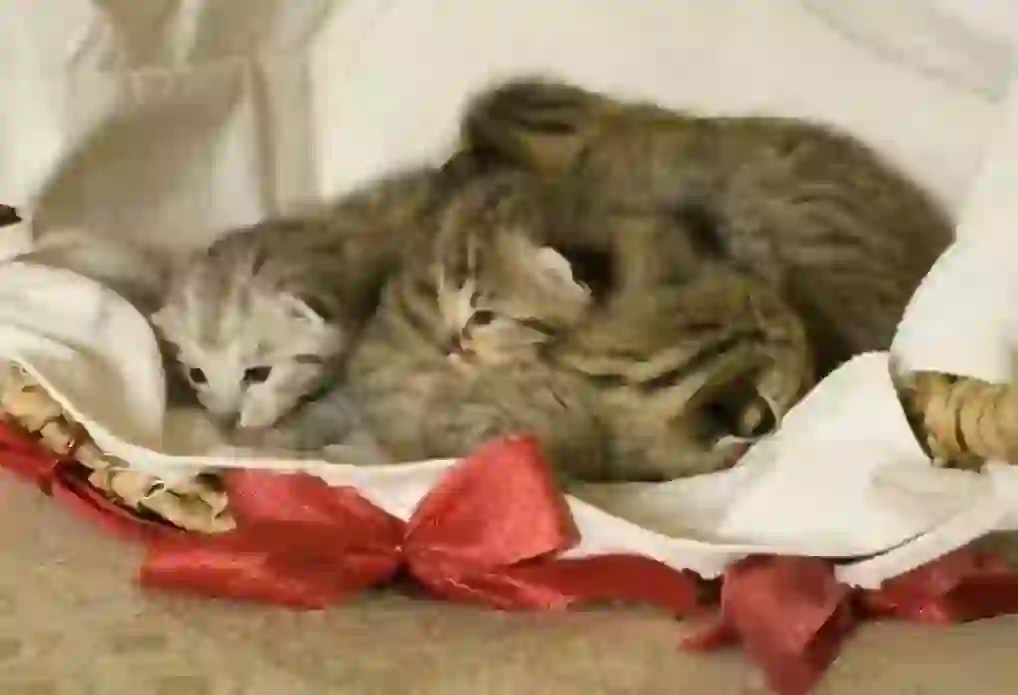
What common diseases are Savannah cats susceptible to?
Savannahs are prone to hypertrophic cardiomyopathy, a condition where the heart muscle thickens and struggles to pump effectively, often due to genetics. This can lead to thromboembolism and potentially fatal complications. Regular health check-ups are crucial for early detection.
They may also suffer from lower urinary tract diseases, which can be exacerbated by their low natural water consumption, a remnant of their desert-dwelling ancestors. Conditions such as urinary stones or cystitis can arise if not managed with a proper diet and hydration.
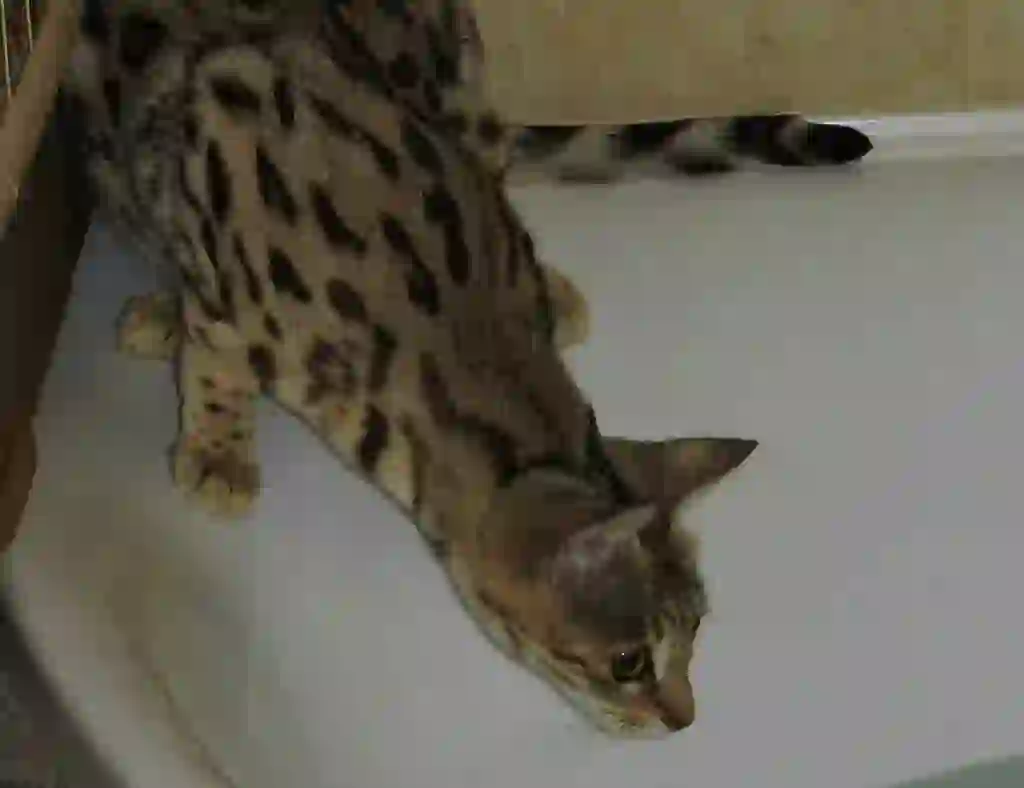
What is the lifespan of a Savannah cat?
Savannah cats can live for 15 to 20 years, which is considerably longer than the average lifespan of most domestic cat breeds.

Would you like to become a part of the 'Animalbook.jp'?
Turn your knowledge into Q&A and share it with the world. ※Publication will be activated after purchase. Let's share information together!
Savannah Type of List
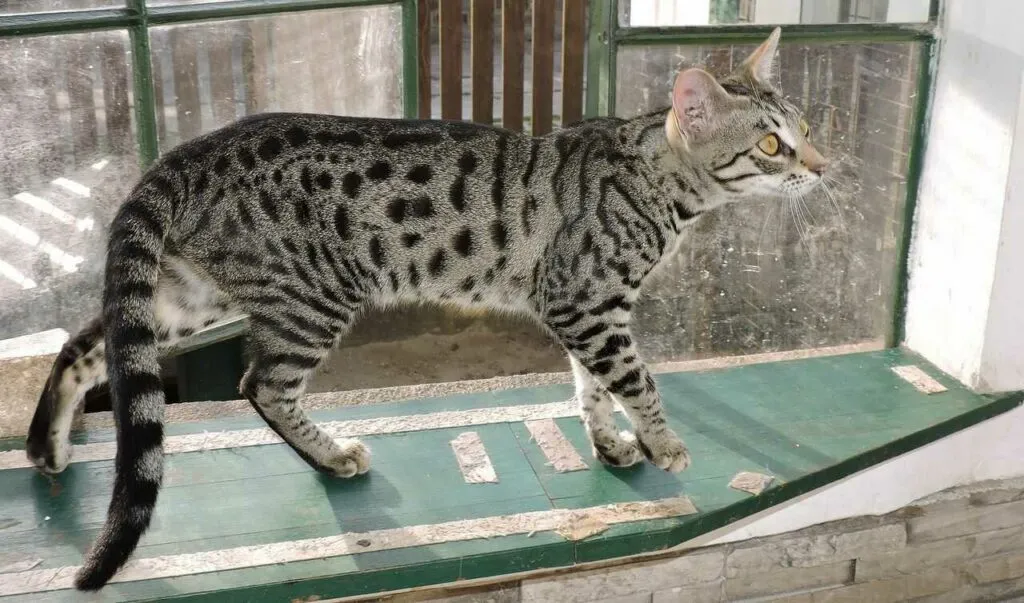
- Savannah
Information
Congratulations! You are the first commenter!

Create Your Favorite List!
Savannah
Save the animals you love! Build your own list to quickly revisit your favorites later.

Would you like to leave a comment?
※Please note: This is for the purchase of rights to post comments within the article.
Find Your Favorites!
Our shop offers a unique and attractive selection of goods themed around various animals.
Savannah References

- まるごとわかる猫種大図鑑 監修:CFA公認審査員 早田由貴子
- 世界中で愛される美しすぎる猫図鑑 監修 今泉忠明
- 猫との暮らし大百科 https://www.anicom-sompo.co.jp/nekonoshiori/
- みんなの猫図鑑 https://www.min-nekozukan.com/
- Pet Smile news forネコちゃん http://psnews.jp/cat/
- 子猫のへや https://www.konekono-heya.com/sitemap.html
- ねこちゃんホンポ https://nekochan.jp/
- 公益社団法人 埼玉県獣医師会 https://www.saitama-vma.org/topics/猫の遺伝性疾患について/
Savannah Introduction of media used

出典:https://pixabay.com/images/id-84082/

出典:https://commons.wikimedia.org/wiki/File:Kissing_Savannahs.jpg

出典:https://commons.wikimedia.org/wiki/File:Savannah-F3-Kater.jpg

Help Enrich Our Animalbook.jp with Your Media!
We are constantly looking to expand and enrich our Animalbook.jp with amazing photos and videos of animals. If you have any media that you'd like to share, please contribute and help us showcase the beauty and diversity of the animal kingdom. Your submissions will be credited and featured in our encyclopedia, reaching a wide audience of animal lovers.
















